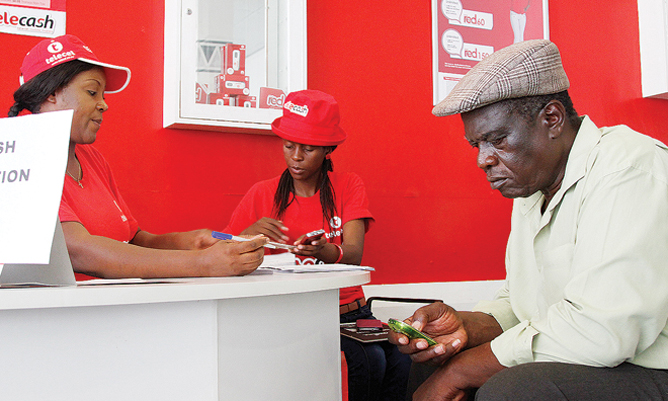
Fintech start-up Mama Money is set to add a new pay-out partner in Zimbabwe in the coming weeks as it seeks to capitalise on the South Africa-Zimbabwe corridor, which has the highest volumes regarding people and money transfers.
BY BUSINESS REPORTER
The company launched a South Africa to Zimbabwe remittance service through Cabs, a unit of financial services group Old Mutual.
Mama Money founder and director Raphael Grojnowski said his company was set to rope in Telecel’s mobile money service, Telecash.
“Right now, cash shortages in Zimbabwe are our key challenge. However, this also represents an opportunity to promote the use of mobile money, mobile banking and mobile payments. After all, cashless electronic payment systems are the future. We will be launching our connection to the Zimbabwean Telecash mobile money wallet in the next few weeks,” he said.
Grojnowski said South Africa’s exorbitant cross-border remittance (money transfer) costs are robbing migrant workers of huge amounts of their hard-earned money meant to improve the lives and livelihoods of their families back at home.
“According to the World Bank, the average cost to send the equivalent of $200 from South Africa to Sadc countries is 18,69%. The global remittance price average is 8,9%,” Grojnowski said.
- Chamisa under fire over US$120K donation
- Mavhunga puts DeMbare into Chibuku quarterfinals
- Pension funds bet on Cabora Bassa oilfields
- Councils defy govt fire tender directive
Keep Reading
“The South Africa-Zimbabwe corridor has the highest volume regarding people and money transfers. But families in Zimbabwe, who receive money from Zimbabweans working in South Africa, receive far less because of the excessive pricing of money transfers.”
Grojnowski said money transfer agencies were making huge amounts of money “on the backs of poorer people, and their pricing is not transparent.”
Established providers such as Western Union, MoneyGram as well as Mukuru charge a minimum of 10% and on top of that, add their own exchange rate margins, he said.
“We researched the vast development potential of reducing remittance costs from South Africa to Zimbabwe. The impact would be instant, immediately helping both senders and receivers. More money would go into the pockets and bank accounts of recipients. In turn, they would have more money for essentials — basic food, better quality food, education, health and then housing,” Grojnowski said.












